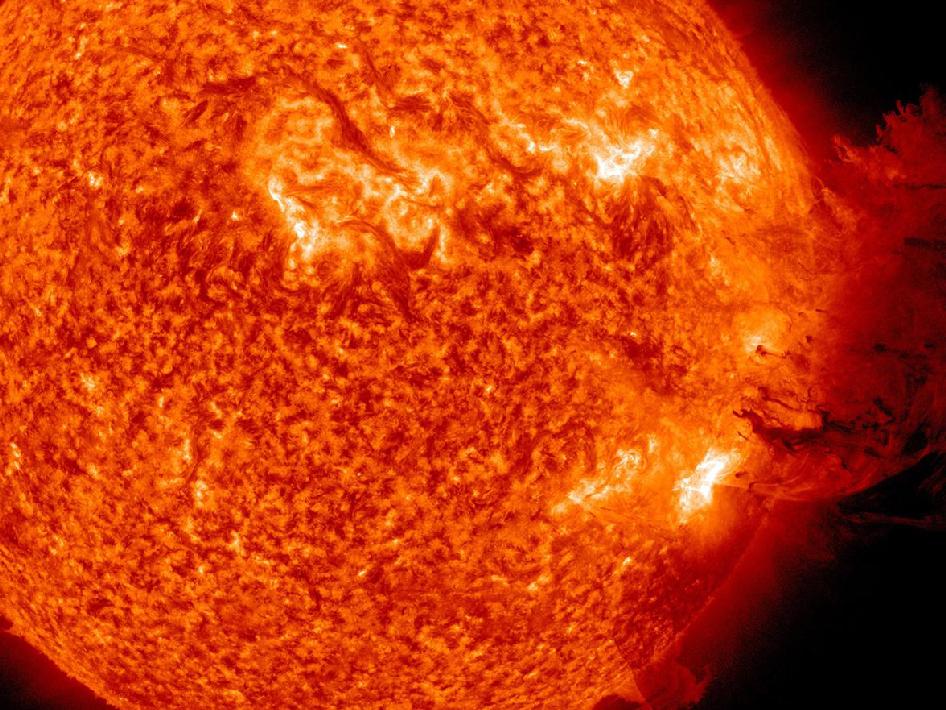Impact of Space Weather
Posted by flysynergy on May 31, 2012 in GA News | Comments Off on Impact of Space Weather The Network Manager at Eurocontrol has identified space weather as a potential problem for European air traffic management, given that it is capable of disrupting aviation’s communications, navigation and surveillance systems.
The Network Manager at Eurocontrol has identified space weather as a potential problem for European air traffic management, given that it is capable of disrupting aviation’s communications, navigation and surveillance systems.
Impact on space and ground-based technology
Space weather - solar activity and solar wind in the magnetosphere, ionosphere and thermosphere - can affect the performance and reliability of both space and ground-based technology. Satellites, radio communications and even electrical power grids can be damaged by space weather. Increased radiation as a result of space weather can potentially affect flight crews, especially at higher latitudes.
Solar activity cycles
Solar eruptions can affect the earth and are more likely to occur during or just after periods of high solar activity. Solar activity has cycles of roughly eleven years and we are in one right now. The current period started in 2011 and will end in 2017.
Impact on satellites
Satellites are, unsurprisingly, vulnerable to space weather. Solar energetic particles emitted by the sun can hit satellites and cause their electronic systems to fail. Geomagnetic storms and an increase in extreme ultraviolet radiation expand the earth’s atmosphere and increase drag on low orbit satellites, making them less reliable.
Satellites have been lost - in 1989 and 2003 - because of space weather. If we have exceedingly bad space weather, experts have estimated that we could lose around half of our satellites. This would mean that we could no longer use satellite systems for navigation and surveillance.
Magnetic and solar storms
Magnetic storms can affect electrical power grids. They cause transformer saturation which reduces or distorts voltage. This can lead to transformer failure and power grid collapse. The loss of a transformer is serious: they take eighteen months to replace. In March 1989, this happened to the Quebec power grid: its long lines and static transformers made it particularly sensitive and it collapsed, leading to a nine-hour blackout and power supply problems which persisted for some time afterwards.
Space weather can affect communications, too. Solar disruptions can affect radio, especially HF (high frequency). Power failure and induced current in telecommunications grids could knock out internet access and telephones.
Solar storms can create unusually high levels of ionising radiation - up to a hundred times higher than usual. This can affect flight crews and passengers, but radiation can also impact on electronics and aircraft avionics.
Keeping a close watch
The Network Manager is in touch with specialist agencies and organisations which can give early warnings and expert information. It is keeping a close watch on the situation and ready to take instant action if anything happens.
Source: Eurocontrol News Feed
